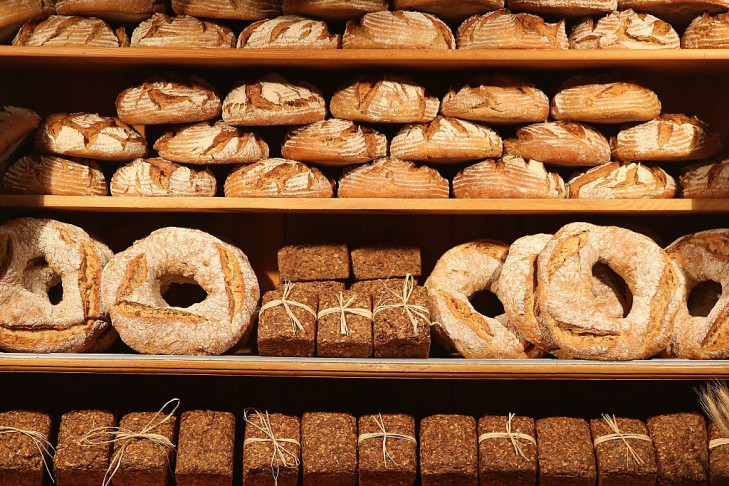Who knows chametz?
The Passover tradition is to clean all chametz (leavened products) out of the kitchen, out of the house, out of the car, out of our lives. The time between Purim and Passover is spent fulfilling this commandment. Or procrastinating it. Or arguing with it. I’m mainly in the latter two clubs. Partly that’s because I didn’t grow up in a traditionally observant home, and I literally don’t know how to clean chametz. As with all things Jewish, there’s a way to do it — actually several — and they are all well-grounded in sacred texts and interpretations of sacred texts. It seems entirely possible to swim for so long in this ocean of text and argument that Shavuot comes before you’ve figured out what the hell you’re doing. Furthermore, there’s a whole raft of complicated points and counterpoints as to what exactly constitutes chametz. And if something isn’t chametz but could possibly be confused with chametz, some people clean it out so that they don’t accidentally make a mistake. (Although if you’ve cleaned out the proper chametz — according to your definition or tradition — what would there be to confuse it with?)
Why it might matter, though
The consequence of having chametz during Passover is not that G-d will exact punishment. Rather it is that the person who has chametz will be separated from the community. The person whose home has chametz in it might not be able to receive visitors, if the visitors are uncomfortable in a chametzy house. It’s not actually an all-or-nothing, but rather that the intersection of two families’ differing practices can be a hard place to be. And worry about whether I’m kosher-enough-for-Passover can make me hesitant to invite the people I might want to invite. Even the self-consciousness is a way of being separated from the community.
You are what you…have?
As I understand it, the law is about not eating chametz. The tradition is about not having chametz in one’s house. Some people symbolically sell their chametz for the duration of Passover, so that even though it might remain in their home, it is considered someone else’s property and therefore not to be touched. That’s all fine and good, but one year, my (non-Jewish) friend’s husband had surgery during Passover. I wanted to cook a meal for them, something comforting, and I settled on soup and bread. I didn’t eat the chametz but I was quite happy to prepare it for my friend, because I felt that was what would be most helpful in their situation. I chose the mitzvah of bikkur cholim over the mitzvah of keeping Pesach, and I’m glad I did.
Rebbe Nachman of Bratslav taught, “True devotion consists mainly of simplicity and sincerity. Pray much, study much Torah, do many good deeds, do not worry yourself with unnecessary restrictions. Just follow the way of our forefathers. ‘The Torah was not given to the ministering angels.’”
The conclusion, for now
It’s no secret I’m not much for housework. What I’m also realizing is that, at least for now, I’m more a spirit of the law kind of gal than a letter of the law kind of gal. Every time I contemplated cleaning for Pesach, I asked myself what G-d wanted in my cupboards. The answers always came back metaphorical. I think G-d wants me to clean out fear, self-doubt, voluntary loneliness, hardness. I think G-d wants my cupboards filled with kindness and generosity, with the energy to do good in the world.
If there are crumbs in the car and cheerios under the radiator, and I assure you there are, perhaps G-d won’t mind, as long as I keep pointing my broom toward the meanness and fear that hold me back from reaching out to the world and being of use in it.
Previously posted at www.jewishthemes.wordpress.com.
This post has been contributed by a third party. The opinions, facts and any media content are presented solely by the author, and JewishBoston assumes no responsibility for them. Want to add your voice to the conversation? Publish your own post here. MORE



